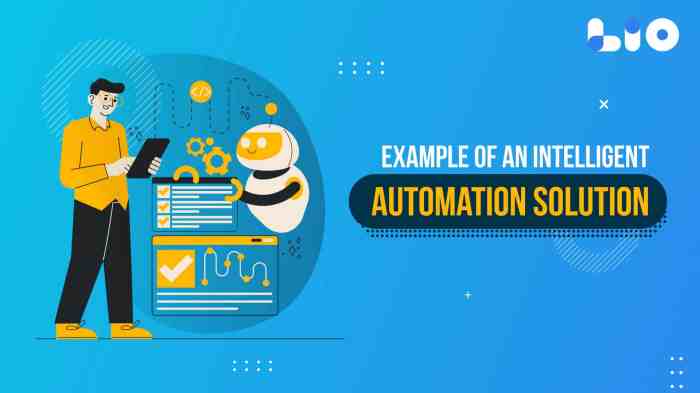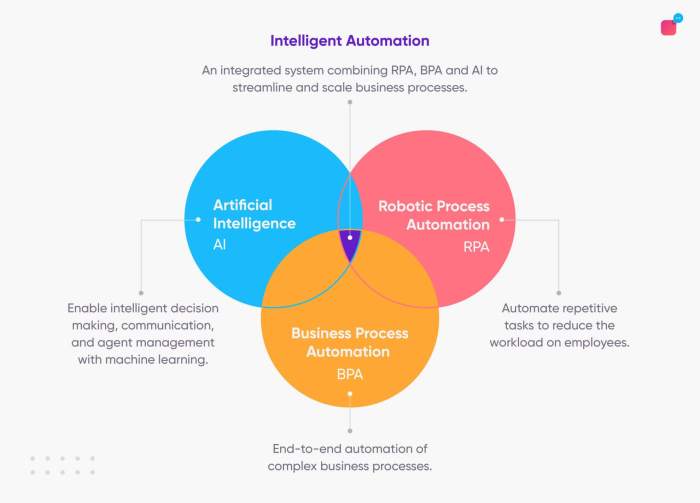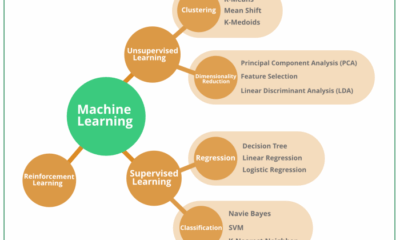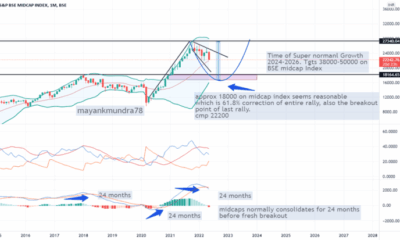Business Technology
Crafting Intelligent Automation Solutions: Revolutionizing Modern Business Operations

Embark on a journey into the realm of intelligent automation solutions, where cutting-edge technology meets innovative business strategies. This topic delves into the fusion of AI and automation, offering a glimpse into how industries are revolutionizing their operations for heightened efficiency and productivity.
From the intricate components to real-world implementations, this discussion will unravel the intricacies of intelligent automation solutions, paving the way for a deeper understanding of its impact on the business landscape.
Introduction to Intelligent Automation Solutions

Intelligent automation solutions are advanced technologies that combine artificial intelligence (AI) and automation to streamline and optimize business processes. These solutions have revolutionized the way organizations operate by enabling tasks to be performed with minimal human intervention, leading to increased efficiency and productivity.
By leveraging AI capabilities such as machine learning, natural language processing, and computer vision, intelligent automation solutions can analyze data, make decisions, and execute actions autonomously. This integration of AI with automation technologies enables businesses to automate complex and repetitive tasks, reduce errors, and enhance decision-making processes.
Examples of Industries Benefiting from Intelligent Automation Solutions
- Finance: In the finance industry, intelligent automation solutions are used for fraud detection, risk assessment, and customer service. AI algorithms can analyze financial data in real-time, identify suspicious activities, and automate compliance processes.
- Healthcare: Healthcare organizations leverage intelligent automation solutions for patient data management, medical imaging analysis, and personalized treatment recommendations. AI-powered systems can process vast amounts of medical information to support clinical decision-making.
- Retail: Retail companies apply intelligent automation solutions for inventory management, demand forecasting, and customer support. By utilizing AI algorithms, retailers can optimize supply chain operations, enhance customer experiences, and drive sales growth.
- Manufacturing: In the manufacturing sector, intelligent automation solutions are utilized for predictive maintenance, quality control, and production optimization. AI-powered systems can analyze sensor data, detect anomalies, and schedule maintenance activities to prevent equipment failures.
Components of Intelligent Automation Solutions
Intelligent Automation Solutions are powered by a combination of key components that work together seamlessly to streamline processes and enhance efficiency. These components include robotic process automation (RPA), machine learning, natural language processing (NLP), and more.
Robotic Process Automation (RPA)
RPA involves the use of software robots to automate repetitive tasks and manual processes. These bots can mimic human actions within digital systems, allowing for faster and error-free execution of tasks.
Machine Learning
Machine learning algorithms enable systems to learn from data, identify patterns, and make decisions without explicit programming. This component is crucial in improving decision-making processes and optimizing workflows.
Natural Language Processing (NLP)
NLP allows machines to understand, interpret, and generate human language. By leveraging NLP, intelligent automation solutions can analyze unstructured data, extract valuable insights, and communicate effectively with users.
Hypothetical Scenario Illustration
Imagine a scenario where a company wants to automate its customer support process. By implementing intelligent automation solutions, RPA bots can triage incoming customer queries, categorize them based on urgency, and assign them to the appropriate department. Machine learning algorithms can then analyze historical data to predict customer behavior and suggest personalized responses.
NLP capabilities enable the system to understand and respond to customer queries in natural language, providing a seamless and efficient customer experience.
Implementation of Intelligent Automation Solutions
Implementing intelligent automation solutions within an organization involves several key steps to ensure successful deployment and integration. Below are the steps and best practices to consider:
Steps for Implementing Intelligent Automation Solutions
- Assess Current Processes: Conduct a thorough assessment of existing processes to identify areas that can benefit from automation.
- Set Clear Goals: Define specific goals and objectives for implementing intelligent automation to ensure alignment with organizational priorities.
- Choose the Right Solution: Select an intelligent automation solution that meets the organization's requirements and integrates seamlessly with existing systems.
- Develop a Roadmap: Create a detailed implementation roadmap outlining tasks, timelines, and responsibilities to guide the deployment process.
- Training and Change Management: Provide training for employees on how to use the new automation tools and implement change management strategies to ensure smooth adoption.
- Monitor and Evaluate: Continuously monitor the performance of the automation solution and gather feedback to make necessary adjustments and improvements.
Best Practices for Successful Deployment and Integration
- Engage Stakeholders: Involve key stakeholders from different departments in the implementation process to gain buy-in and support.
- Start Small: Begin with pilot projects or small-scale implementations to test the automation solution before scaling up across the organization.
- Focus on ROI: Measure the return on investment (ROI) of the automation solution to ensure that it is delivering the expected benefits and value.
- Continuous Improvement: Embrace a culture of continuous improvement by regularly optimizing and refining the automation processes for maximum efficiency.
Real-World Examples of Effective Implementation
- Company A: Company A successfully implemented intelligent automation in their customer service operations, reducing response times and improving customer satisfaction levels.
- Company B: Company B integrated intelligent automation into their supply chain management, streamlining inventory management and reducing costs.
Benefits of Intelligent Automation Solutions
Intelligent automation solutions offer numerous benefits to organizations, ranging from increased productivity to cost reduction and enhanced accuracy. Let's delve into the advantages of implementing such solutions and how they contribute to business growth and competitiveness.
Increased Productivity
Intelligent automation solutions streamline repetitive tasks, allowing employees to focus on more strategic and value-added activities. By automating manual processes, organizations can significantly boost their productivity levels and achieve higher efficiency in operations.
Cost Reduction
Compared to traditional automation methods, intelligent automation solutions are more flexible and adaptable, leading to cost savings in the long run. By automating workflows and minimizing human intervention, organizations can reduce operational costs and optimize resource utilization.
Enhanced Accuracy
Intelligent automation solutions leverage advanced technologies like artificial intelligence and machine learning to perform tasks with a higher degree of accuracy and precision. By eliminating human errors and inconsistencies, organizations can ensure consistent and reliable outcomes in their processes.
Business Growth and Competitiveness
By harnessing the power of intelligent automation solutions, organizations can innovate faster, respond to market changes more effectively, and deliver superior customer experiences. This strategic advantage enables businesses to stay ahead of the competition, drive growth, and achieve sustainable success in the digital era.
Challenges in Adopting Intelligent Automation Solutions

When organizations decide to adopt intelligent automation solutions, they often encounter various challenges that can hinder a smooth transition. These challenges can impact overall business operations and require careful planning and strategies to overcome.
Integration with Existing Systems
One common challenge is the integration of intelligent automation solutions with existing systems and processes. Different systems may not be compatible, leading to data silos and inefficiencies. To overcome this challenge, organizations need to conduct a thorough assessment of their current systems, identify potential integration issues, and work with experts to develop a seamless integration plan.
Resistance to Change
Another challenge is the resistance to change from employees who may fear job displacement or changes in their roles. To address this, organizations should invest in change management strategies, provide training and upskilling opportunities, and clearly communicate the benefits of automation to employees.
Involving employees in the transition process can help alleviate fears and ensure a smoother adoption.
Data Security and Privacy Concerns
Ensuring data security and privacy is a major challenge when implementing intelligent automation solutions. Organizations need to comply with regulations and implement robust security measures to protect sensitive information. By conducting regular security audits, investing in encryption technologies, and training employees on data protection best practices, organizations can mitigate the risks associated with data security and privacy concerns.
Future Trends in Intelligent Automation Solutions
Intelligent Automation Solutions are constantly evolving to meet the changing demands of industries and businesses. Let's explore some of the future trends that are shaping the landscape of automation.
Integration of AI and Machine Learning
The future of intelligent automation solutions lies in the seamless integration of artificial intelligence (AI) and machine learning. By leveraging these technologies, automation systems will become more adaptive and intelligent, capable of learning from data and making decisions autonomously.
Hyperautomation
Hyperautomation is the concept of automating as many processes as possible using a combination of technologies like robotic process automation (RPA), AI, and machine learning. In the next 5-10 years, we can expect to see a significant rise in hyperautomation adoption across industries, leading to increased efficiency and productivity.
Edge Computing for Real-time Decision Making
With the proliferation of Internet of Things (IoT) devices, edge computing will play a crucial role in intelligent automation solutions. By processing data closer to the source, automation systems can make real-time decisions without relying on centralized servers, enhancing speed and agility in operations.
Ethical AI and Governance
As automation systems become more autonomous, there will be a growing emphasis on ethical AI and governance frameworks. Ensuring transparency, accountability, and fairness in automated decision-making processes will be essential to build trust and mitigate potential risks associated with intelligent automation solutions.
Closing Summary

As we conclude our exploration of intelligent automation solutions, it becomes evident that the future is ripe with possibilities. The transformative power of these solutions is poised to reshape industries, driving growth and competitiveness in a rapidly evolving market.
FAQ Compilation
What industries can benefit from intelligent automation solutions?
Industries such as healthcare, finance, manufacturing, and customer service have seen significant benefits from implementing intelligent automation solutions.
How do intelligent automation solutions differ from traditional automation methods?
Intelligent automation solutions leverage AI technologies to make data-driven decisions and adapt to changing circumstances, offering more flexibility and efficiency compared to traditional automation.
What are some common challenges in adopting intelligent automation solutions?
Organizations often face challenges such as resistance to change, lack of expertise in AI technologies, and concerns about job displacement when adopting intelligent automation solutions.
What are the benefits of integrating machine learning in intelligent automation solutions?
Machine learning enhances the predictive capabilities of intelligent automation solutions, enabling them to analyze vast amounts of data and optimize processes for greater efficiency.
How can companies ensure successful deployment of intelligent automation solutions?
Companies can ensure successful deployment by conducting thorough training for employees, setting clear goals and expectations, and continuously monitoring and optimizing the automation processes.

-

 Trading6 months ago
Trading6 months agoSilver MCX Live Price Real Time Updates: Stay Ahead in the Trading Game
-

 Investment6 months ago
Investment6 months agoExploring the Best Index Funds to Invest in 2025
-

 Investing6 months ago
Investing6 months agoSilver MCX Live Price with Real Time Updates: A Comprehensive Guide
-

 Business6 months ago
Business6 months agoExploring Digilifes Digital Transformation Case Studies
-

 technology6 months ago
technology6 months agoExploring Machine Learning Algorithms: A Comprehensive Guide
-

 Finance6 months ago
Finance6 months agoExploring BSE Midcap Index Today Market Insights
-

 technology6 months ago
technology6 months agoUnveiling the Power of Digilife Business Intelligence Solutions
-

 Personal Finance6 months ago
Personal Finance6 months agoCrafting Your Wealth: Smart Dollar Wealth Building Strategies


